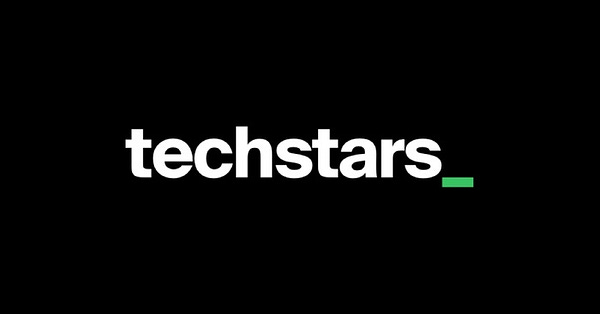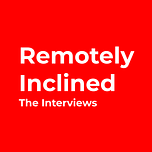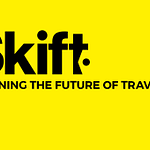Hi,
Welcome to Remotely Inclined, a newsletter about running a business remotely. If you’d like to sign up, you can do so here. Want to share your feedback? Respond to this email (or send me one). Or just read on…
Techstars is one of the largest startup accelerators in the world, with hubs in over 30 cities, spanning over 10 countries around the world. But in 2017, the accelerator launched Techstars Anywhere, a program for people who can’t - or shouldn’t - relocate for an accelerator. With COVID, the whole startup ecosystem went remote, but Techstars Anywhere was able to continue operating and support all other Techstars accelerators with its experience and knowledge.
In today’s chat, Ryan Kuder - the Managing Director of Techstars Anywhere - shared the biggest challenge he’s seen on remote teams, the secret to getting into Techstars, and why Techstars Anywhere is all-in on remote work.
The biggest challenge of remote teams
→ Whether hybrid or all-remote, Ryan observed teams struggling with intentional communication. It’s not just that you can’t read body language, but each act of communicating requires the intention to act. It’s a weird thing initially for people who are so used to sitting in an office and passively recognizing opportunities to communicate.
→ The solution that Ryan shares with Techstars founders is two fold:
Plan channels for emotions, problems, and specific issues to rise to the surface. Because you can’t see things in person, the different channels (i.e. “Client issues.” “Stuck on a problem.” etc.) make those challenges visible again.
Set the tone as the founder, actively leveraging the channels as you want employees to leverage them. Encourage people to use the systems in place so that they become habit.
Techstars Anywhere: the secret to getting in
→ Techstars is sector and stage agnostic, meaning a brand new startup might be in the program with a multi-million dollar scaling company. This is because Techstars chooses to focus on inflection points in companies.
→ Ryan said the inflection points he looks for are:
Companies that are getting ready to launch once they’ve built a product.
Companies getting ready to fundraise, whether a first round or a subsequent round.
Companies getting ready for scaling and fast growth.
→ From there, Ryan said the companies that are successful at getting into Techstars all have both a vision for the future of the world and a clear understanding of how their company fits into that new world. Then comes the traditional team assessment, skills assessment, and other common elements of getting into a startup accelerator.
From remote companies to empowering remote work
→ In the first cohorts of Techstars Anywhere, the accelerator wanted any kind of company. The issue wasn’t whether you were remote or not, simply that relocating for an accelerator didn’t make sense. For example: one of the first Techstars Anywhere companies was an organic mushroom farm in Brooklyn, NY.
→ Ryan and Techstars have a vision that remote work will become significantly more accelerated due to COVID (something we agree on!), and as a result tons of industries will change, both in terms of how we work but also how we live and travel.
→ In response to COVID and the changing world of remote work, Ryan and the Techstars team are making a big bet with Techstars Anywhere, focusing the accelerator on the future of work and startups tackling the impacts of remote work.
The final word
Techstars applications are open. The accelerator is looking for companies at the point of evolution - product to revenue, revenue to growth, etc.


Remotely Inclined Chats with Ryan Kuder
Transcript edited for brevity and clarity.
Stefan: Welcome, Ryan! When we chatted, you said Techstars Anywhere isn’t a remote version of Techstars, but a whole new, remote accelerator experience. What do you mean by that?
Ryan: We’re all thinking about how to build remote experiences for our employees - especially over the last six months. The first step people take is usually to do what they’ve always done, but now on zoom. Everything kind of stays the same - but you wind up with some dissonance in that experience.
So the way we’ve thought about Techstars Anywhere is we’ve got objectives for our founders. We want them to become great storytellers. We want them to build a fantastic network. We want them to be able to raise money. We want them to understand the levers and metrics that drive their business. And we want them to be able to understand the rhythms and cadences for their companies.
We used our decade of experience that we had running Techstars accelerators as the starting off point then thought, given these objectives, what are the changes we need to make? It’s been an evolving process since our first remote accelerator back in 2017, which had a hypothesis of a hybrid model - it’s a little bit of time together in person, a little bit of time working remotely with the objective being to create an experience that was going to get that full value of a Techstars accelerator experience.
Which elements of the accelerator are all-remote versus which are in-person?
So much of what we do is building relationships. And there’s just something about breaking bread or having a drink - or even just sitting with somebody looking out over the ocean. In normal times (non-covid), it’s an experience that combines three in person gatherings with five week sections of remote work.
When we’re in person, we’re focused on deep dives into particular topics and focused on relationship building. We’re focused on building out the network with our mentors. And then when we are in our remote periods, we’re focused on the meetings, execution, and building of the companies. In-person sessions are spread out evenly throughout the program so that we’re constantly getting back and forth.
One of the great things about the Techstars network is that with all current Techstars accelerators running remotely, we’ve been able to try out of a lot of things and been able to focus on what it’s like to build experiences for founders that are delivered first and foremost, remotely.
What’s been the biggest change or evolution in your process with Techstars Anywhere (barring COVID, which of course forced lots of change)?
There have been a lot, to be honest with you. Like a startup founder, one of the things we’re constantly figuring out is how do we continuously build better experiences for our constituents - founders, mentors, and investors.
The way we’ve gone about it is thinking about three experiences and figuring out the opportunities for us to create and opportunities for those to overlap. Each of the four programs we’ve put in different things, set up different kinds of meetings, structured interactions differently, and created more opportunities for connections. It’s focused on creating community that involves not just the founders in the accelerator but also all the alumni and mentors and investors attached to the program.
Can you share an example of how you structured your virtual experiences?
I believe that great remote work is not exclusively remote. When we think about how people develop relationships, there’s a ton of value that comes from hybrid things.
At Techstars anywhere, we spend the first two weeks really understanding our business. Week one is a qualitative look at the business. Where are we as entrepreneurs? What are the businesses we want to build? Who are our customers? What are they buying from us and why? In week two we look at quantitative parts of the business: revenue, financial models, KPIs, and target setting.
For the remainder of the program, companies work through meetings with mentors on their KPIs and understanding the challenges that companies are facing. Midway through the program, we get together and start to talk about storytelling, fundraising, and figuring out the best financing strategy for the business.
We don’t have a traditional demo day - we do it online, and have been doing online demo days since 2017. We’ve been playing with the format to get the right audience to the right founders. We’re really focused on a few questions: What are we doing after this is over? How does everybody go home? What kind of continuity do we keep? When the program is over, the Techstars experience is really just beginning.
What have been the biggest stumbling blocks administering a remote accelerator?
One of the biggest challenges is having a comprehensive understanding of everything that’s going on. With the shift from co-located to remote work, we lose the ability to see people. You don’t know when to tap somebody on the shoulder and say ‘let’s grab a cup of coffee and talk through whatever’s going on’.
One of the most important things I can do is to approach every day with intentionality. We need to ensure we’re communicating the things we need to and that we are checking in with people on a regular cadence. If folks are struggling with a task or job or customer, create channels that allow that to surface so we can see what’s happening around us without necessarily being able to see it visually. That requires everybody to buy into the systems that are put in place in order to allow those things to surface.
How do you make sure you’re in a good spot as a leader to be intentional with communications?
It’s important that your company develop the culture that’s right for it. There isn’t any kind of culture that fits everybody. When you think about your own remote policies and remote styles, the most important thing is that founders recognize for themselves where they want to be. Some founders will be overly transparent. Some will tend to be more reserved.
The big part is how you set the tone of the types of things we share and talk about as a community. That becomes something reinforced by behaviors.
The accelerator is now beginning to focus on startups that support the future of work. What prompted the shift?
Our first class was really focused on how we create a great experience for founders who can’t or shouldn’t relocate for an accelerator. But Techstars is a largely remote company ourselves and we started to see the changes that happen in work firsthand.
With covid, we went from slow roll adoption to overnight nearly 100% adoption where it can happen. Our hypothesis is that this will come back down a little bit but is still a step function above where it used to be. We’ll see this adoption of more flexible work-from-anywhere policies, where it’s home, the office, or a coffee shop or coworking space. We believe that will have big, lasting, fundamental changes not only in how we work but in how we live. So we’re interested in founders that are looking at these types of impacts.
When a person’s office does not dictate where they live, all kinds of things change: neighbourhoods, transportation, entertainment, travel, etc. There are all these downstream effects.
What kinds of companies are you looking for with the new cohort of Techstars Anywhere?
We have applications open for seven or eight Techstars Accelerators, including Techstars Anywhere, most of which will be running at least partially remotely. We’re not 100% sure what that will look like moving forward.
For Techstars Anywhere, when we think about the founders that are a great fit, it’s people who have a vision about the way the world should look and what their company is in it. They’ve got an ability to share that story and get people on board. They’ve got all of the technical and functional skills necessary to get to whatever the next stage is. And we also look at the market people are working in, the progress they’ve made, and the idea they are working on.
It’s about companies entering inflection points. Around launch. Around a fundraising round. Around growth.
Amazing, thank you for your insights!
You can get in touch with Ryan on Twitter and via Techstars’ website.

Image courtesy Techstars













Share this post